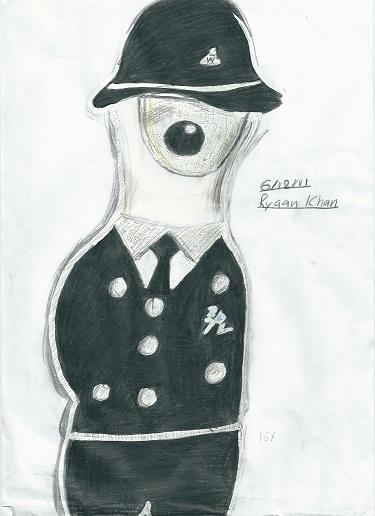
The Guardian has published an analysis of the planned unprecedented security measures for the 2012 London Olympics, and the wider implications of a booming security industry.
Highlights:
“… the London Olympics will host the biggest mobilisation of military and security forces seen in the UK since the second world war. More troops – around 13,500 – will be deployed than are currently at war in Afghanistan. “
Mind you, that’s just the military troops deployed on home turf; the number of police is kept secret!
“… Ramping up surveillance is thus now as much a part of economic policy as a response to purported threats.
The security boom is unaffected, or perhaps even fuelled, by the global crash, as wealthy and powerful elites across the world seek ever-more fortified lifestyles.”
That’s called ‘new enclosures’ for you….
The author also contextualises the often-heard theory that the security structures of airports function as a testing ground for a more widespread application:
“…the familiar security architecture of airports and international borders – checkpoints, scanners, ID cars, cordons, security zones – start to materialise in the hearts of cities. What this amounts to, in practice, is an effort to roll out the well-established architecture and surveillance of the airport to parts of the wider, open city. The “rings of steel” around the City and Docklands in London were early examples of this.”
By the way, the drawing above is a schoolboy’s rendition of Wenlock the London Olympic mascot, dressed as a police officer.
This article on gamesmonitor.org.uk, an Olympics-critical site goes on to describe how emergency measures acquired for the severest of emergencies are now routinely exercised on routine small-scale events such as union demonstrations. Using Giorgio Agamben’s definition of the ‘Ausnahmezustand’ (State of Exception) the article describes the ‘performative’ ‘unveiling’ of a new type of police cordon, and the “new enclosures” appearing in our cities which work like medieval defence structures.
“One aspect of the performativity of the ‘unveiling’ of the #Nov30 wall stands out: its timing. It marks the end of a year of unrest, in which the Met have been accused by the right in slacking in their response to the student and 26 March protests, and accused by the liberal left of slacking in their response to the riots. More importantly, it marks an authoritarian escalation ahead of a 2012 which promises more poverty, more inequality, more unemployment and more unrest: and with it, a state of exception of truly Olympian proportions.”
There’s a nice ending to that article, check it out. A good ending is so important (in an article as in artworks).